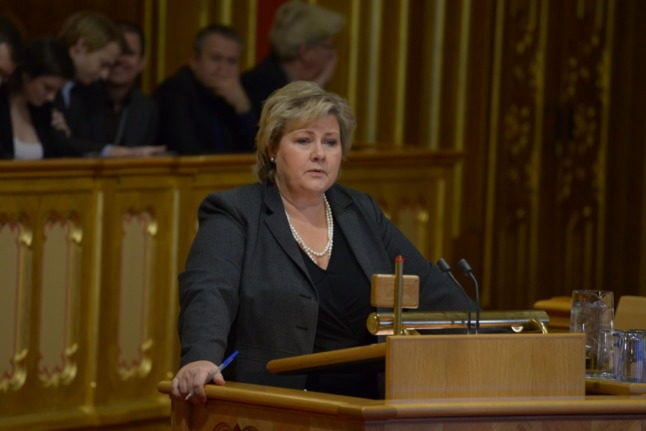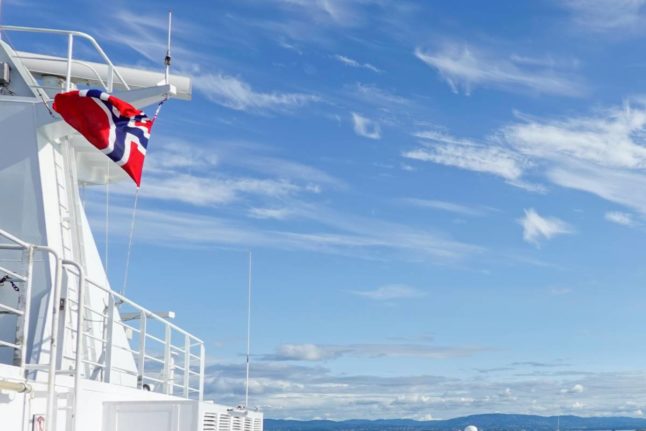According to opinion polls, a clear majority is emerging to unseat Prime Minister Erna Solberg’s centre-right government, which has ruled the Nordic country for the last eight years.
The leader of Norway’s Labour Party Jonas Gahr Store, a 61-year-old millionaire who has campaigned against social inequality, seems well placed to succeed her, but the exact shape of the coalition needed to pave his way to office is still unclear.
His party’s preferred allies are the agrarian Centre Party and the Socialist Left Party, but if they are unable to reach a majority on their own they might depend on the support of the Green Party and or the communist Red Party, potentially complicating negotiations.
“I have a good feeling,” Store said as he cast his ballot at a school in Oslo on Sunday, with voting opening a day earlier in the major cities.
As of Friday, more than 1.6 million Norwegians, or 42.3 percent of the electorate, had made use of early voting opportunities.
Overcoming addiction
The August “code red for humanity” report from the Intergovernmental Panel on Climate Change (IPCC) put the issue at the top of the agenda for the election campaign and forced the country to reflect on the oil that has made it immensely rich.
The report energised both those on the left and, to a lesser extent, the right who want to get rid of oil.
The Green Party is leading the charge in calling for an immediate halt to all oil exploration and a 2035 deadline for exploitation.
That ultimatum has been rejected by Store, a minister under Jens Stoltenberg between 2005 and 2013.
Like the Conservative Party, the other dominant political force in the country, the Labour Party has refused a farewell to the black gold.
Instead, they advocate a gradual withdrawal from the oil that has served as a windfall for the country since exploration started in the 1960s.
The oil sector accounts for 14 percent of gross domestic product, as well as 40 percent of its exports and 160,000 direct jobs.
In addition, the cash cow has helped the country of 5.4 million people amass the world’s biggest sovereign wealth fund, today worth more than 12 trillion kroner (almost 1.2 trillion euros, $1.4 trillion).
“The demand for oil is on a downward path. This is happening by itself, by market forces. We don’t need to decree it… but instead build bridges to future activities,” Labour’s energy chief Espen Barth Eide told AFP.
“We will continue to have oil activities but we have to admit that the best oil years are behind us,” he said.
Arctic exploration in question
According to many observers, a compromise will depend on success of the parties with environmentalist leanings and could involve cutting off certain waters for oil exploration, particularly in the Arctic.
“I think a smooth transition is very important to keep the knowledge within the oil industry to make a green shift over to renewable energy,” Fridtjof Elgesem, a 29-year-old Oslo resident, told AFP.
For Camilla Larsson, 33, the next government should limit oil production to meet climate targets.
“It will impact taxes, it will impact the way of living in Norway but I think that is something that has to change in order for us to reach the climate goals,” Larsson said.
“Fortunately, we live in Norway, we are super privileged and when it comes to climate and the way of living we have to give something to achieve what theworld has set to achieve,” she added.
After eight years in power, a record for Norway’s conservatives, and multiple crises including migration, falling oil prices and Covid-19, Solberg is likely to pass the baton.
The 60-year-old is expected to cast her ballot mid-morning in her home town of Bergen.
“We must always govern as if we were to stay in place for eternity and design big projects because that is the job of a Prime Minister,” she told broadcaster NRK on Sunday.
The first preliminary results are expected at 9:00 pm (19:00 GMT).



 Please whitelist us to continue reading.
Please whitelist us to continue reading.
Member comments